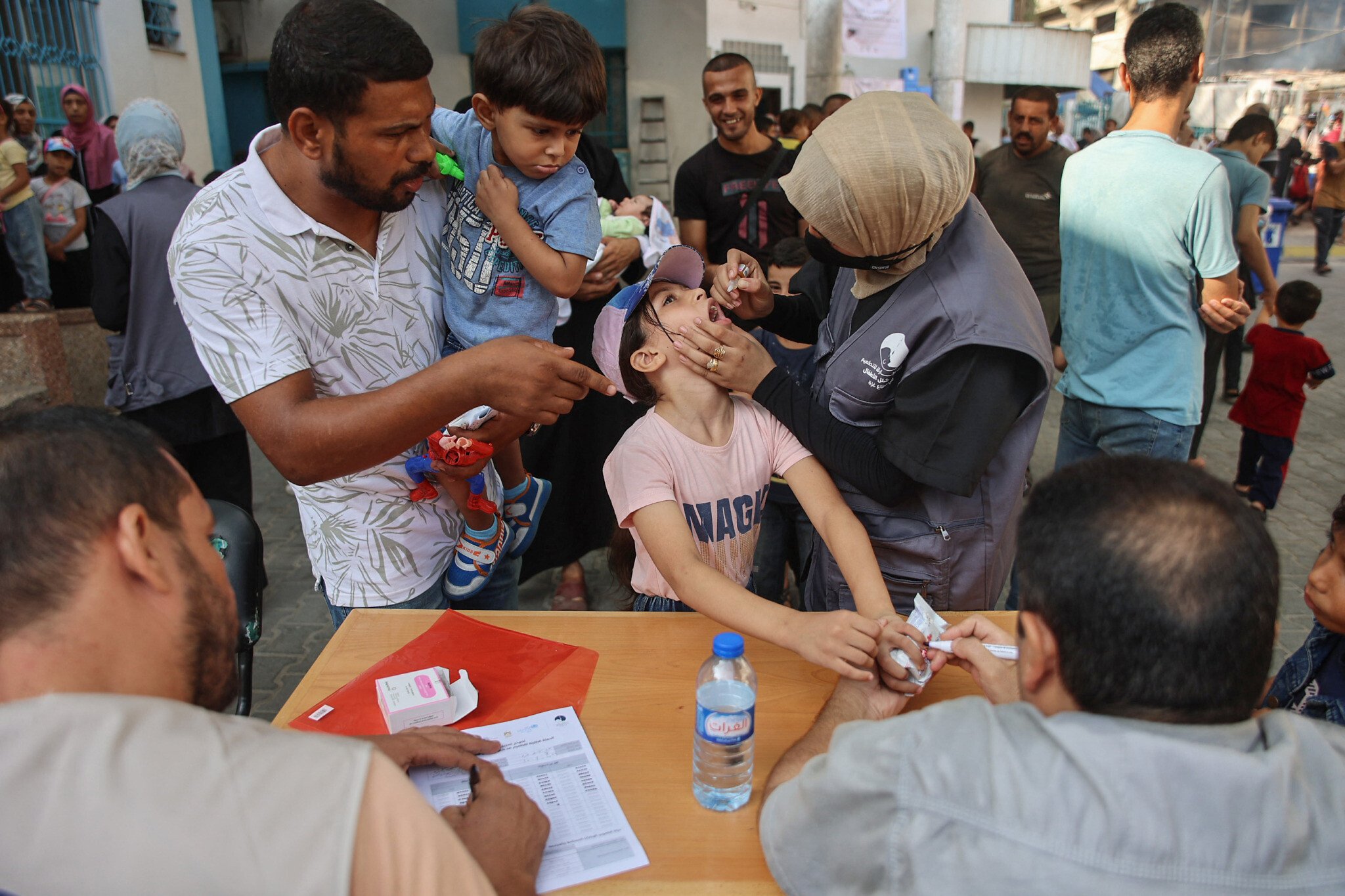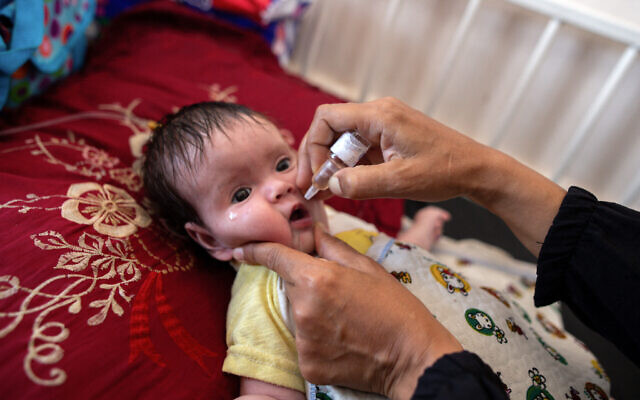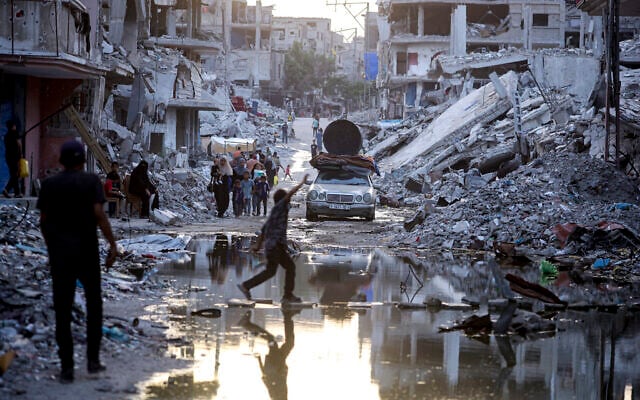



A third mass polio vaccination campaign began in Gaza on Saturday, AFP journalists reported, to deliver the first dose to nearly 600,000 children across the Palestinian territory.
Scores of children under the age of 10 received the dose at a mosque in Jabalia, in northern Gaza, where a blistering Israeli military assault last year reduced many buildings to rubble.
The vaccination campaign involves multiple United Nations agencies, including the Israeli-boycotted UN Relief and Works Agency for Palestine refugees (UNRWA), and comes at a time when Israel and Hamas are observing a ceasefire that has largely halted the fighting.
Israel cut ties with UNRWA after it was revealed that it had been deeply infiltrated by Hamas and dozens of employees took part in terror attacks, including on October 7, 2023 when thousands of terrorists stormed into Israel, killing some 1,200 people and taking another 251 hostages.
The World Health Organization said the campaign aims to vaccinate more than 591,000 children by February 26.
“Over 1,700 UNRWA team members will take part in this campaign,” UNRWA chief Philippe Lazzarini wrote on X.
“This campaign follows a recent detection of polio in wastewater, putting the lives of children at risk.”
Hoping for a lasting truce, Bassam al-Haou, a resident of Jabalia, brought his daughters to receive the vaccine.
“I also hope for stability for our innocent children so they can remain safe from violence,” he told AFP.
The previous two polio vaccine drives were conducted in late 2024 after the highly contagious disease resurfaced in Gaza for the first time in over 20 years.
Around 95% of children eligible for the vaccines were inoculated during those campaigns, the WHO said, but “pockets of individuals with low or no immunity provide the virus an opportunity to continue spreading and potentially cause disease.”
“The current environment in Gaza, including overcrowding in shelters and severely damaged water, sanitation and hygiene infrastructure, which facilitates fecal-oral transmission, create ideal conditions for further spread of poliovirus,” the WHO cautioned.
After more than 16 months of war between Israel and Hamas, the humanitarian situation in Gaza is dire.
The WHO noted that the ongoing ceasefire and hostage release deal between Israel and Hamas that came into effect in January could inadvertently cause the disease to spread further, due to “extensive population movement.”
Even before the hostilities began, the territory had been struggling under an Israeli-imposed blockade for more than 15 years on materials that could be used for military purposes. The blockade was implemented after the terror group Hamas, which is dedicated to Israel’s destruction, took over the Gaza Strip.
Much of the water infrastructure in Gaza has been destroyed by the war, leaving sewage to stagnate in open pools near densely populated neighborhoods — conditions that contributed to the reemergence of the virus last autumn.
The WHO reported on February 19 that traces of poliovirus had again been detected in wastewater samples.
Polio is highly contagious and can cause paralysis, primarily affecting children under the age of five. The disease has been nearly eradicated worldwide.
More than 1.1 million vaccines were administered during the two previous campaigns, conducted by the WHO and UNICEF, and in coordination with the Coordinator of Government Affairs in the Territories, a Defense Ministry agency that coordinates the provision of humanitarian aid into Gaza.
COGAT said at the time that it had facilitated humanitarian pauses in the fighting in Gaza to allow the distribution of the vaccine.
While no further polio cases have been reported in Gaza since, the WHO said that recently collected environmental samples from Deir al-Balah in the center of the Strip and Khan Younis in the south confirmed polio transmission.
Reuters contributed to this report.


